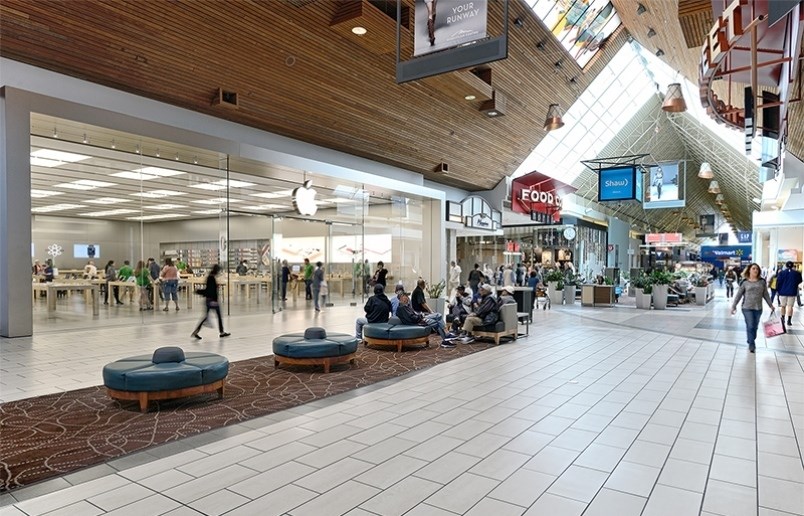The method BC Assessment uses to value commercial real estate favours larger property owners at the expense of small businesses, according to the city of Coquitlam.
Several councillors and staff told representatives from the Crown corporation during a committee meeting Monday BC Assessment is undervaluing the municipality's biggest land parcels in areas that are prime for redevelopment. And as a result, they said, the tax burden is falling on smaller commercial property holders and businesses that in many cases do not own their land but pay property taxes through triple-net leases.
"It seems with the big players, for some reason, their land is worth less per acre than the smaller players," said Mayor Richard Stewart. "Residents are trying to figure out how come this doesn't seem fair."
One example cited by staff and council multiple times as an undervalued property is Coquitlam Centre.
While the most recent assessment shows the overall value of the site is $658.6 million, the land for the 54-acre parcel is only assessed at $337.9 million. That works out to approximately $6.3 million per acre, Stewart said, which is significantly lower than valuations seen in neighbourhoods such as Burquitlam and Austin Heights, both of which are undergoing development.
For example, Coquitlam College, a 5.33-acre property located along the North Road corridor, is valued at $78.4 million, or $14.7 million per acre; and Me-n-Ed's Pizza, a 0.25-acre property on Austin Avenue, is assessed at $3.8 million, or approximately $15.2 million per acre.
BC Assessment said it bases its valuation for Coquitlam Centre on revenue income the property is able to generate, a method city manager Peter Steblin said only tells part of the story. He noted the site is in close proximity to rapid transit and is the focal point of a City Centre area plan that will pave the way for high-density residential and commercial developments on what today is mainly parking lots.
"We are in the land business," Steblin told BC Assessment head assessor Ed Shum during Monday's meeting. "We absolutely know that if we offered [Coquitlam Centre owner] Morguard 15% more than what you have assessed their property for, they would laugh at us. We absolutely know it is worth at least double what you have assessed it at."
He added that BC Assessment's approach does not live up to its legislated mandate, which is to value property based on what it is worth on the open market.
"There is a real unfairness in terms of the tax burden that is being assessed on the very small businesses in other areas," he said. "We have a real hard time explaining that to anyone that asks us those questions."
But Shum stood by BC Assessment's numbers.
He said staff and council are mistaken when they compare large holdings like Coquitlam Centre to other commercial properties. A better comparison would be other major retail sites in Metro Vancouver, such as Lougheed Mall and Brentwood Mall in Burnaby.
Shum told The Tri-City News Oakridge Mall, located on Vancouver's expensive west side, sold for $960 million in 2017 during a time when the market was more robust.
"How can Coquitlam Centre be worth a billion?" he asked.
Shum added that land valuations for large parcels cannot necessarily be compared with assessments for smaller commercial properties. As an example, he said the dollar per acre land cost for a large retailer, like Costco, is much lower than a smaller retail space, like Starbucks.
Shum also noted that while Coquitlam council may have every intention of allowing higher densities in its City Centre neighbourhood, until the plans are adopted, it is difficult for BC Assessment to reflect the values in their numbers.
"We need evidence," said Niko Papoutsakis, a deputy assessor.
He added that property owners can challenge their assessments, which can take years to resolve. If the assessment is reduced following the appeal process, there is a risk that the city would be on the hook for the additional property taxes.
"If we doubled it, it is going to get challenged," Papoutsakis told Steblin during the meeting. "We can't just do something because we think it is too low. We need evidence because we do get challenged."



